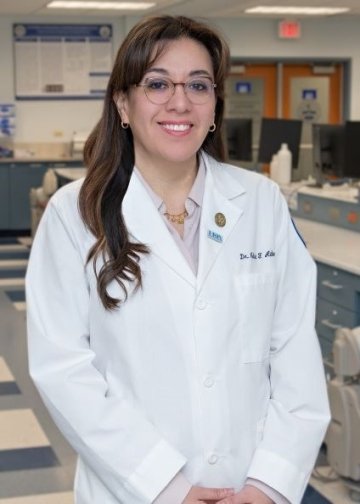
I hope they learn O.M.T. can be fun and that it is an art as much as a science.
Years at Midwestern University:
I started 01/2023.
What are your research interests?
My research interests are broad, but most of my interests pertain to the pillars of lifestyle medicine and how they influence overall health. I am seeking to understand better the mechanisms of action involved in that process, specifically nutrition, exercise, sleep, social connections, substance abuse, and mental health influences.
What is the most rewarding part of being a member of the Midwestern University faculty?
There are many, but the most rewarding is the contribution to our future generations of healthcare providers—being able to bring my experience into the lab and lecture hall adds a new element of reward to practicing medicine, seeing the future faces of medicine and their eagerness and determination. I am incredibly grateful for the opportunity to advance my own understanding among dear and trusted colleagues, the ability to do research, and the collaboration within our community of providers. I can shoot out a message to Lisa Palmisano, Pharm.D., Associate Professor, Pharmacy Practice, or Teresa Elliott-Burke, P.T., D.P.T., M.H.S., Academic Clinic Coordinator, Physical Therapy, about a patient to truly optimize care in a way that is not typically available elsewhere. The support that has come from all areas of the Midwestern University team has made for a very fostering environment that benefits students and patients.
How do you engage students in the learning process?
I believe our role is not one of a sage-on-a-stage (professor only lectures to a class), but as mentors. We guide students through Socratic models of discussion, authentically letting them find their way to solutions and fostering that through patience, repetition, and academic rigor that hones their skillset to clinical standards.
What do you hope students learn from your classes?
From an Osteopathic Manipulative Treatment (O.M.T.) standpoint, I hope they learn O.M.T. can be fun and that it is an art as much as a science. Finding and treating dysfunction through the myriad techniques we have developed that save a patient time, pain, and frustration puts our body IQ to the test every day, which often enhances our ability in our other clinical purviews. Not to mention, patients who find relief from chronic pain show such gratitude and make the hard work deeply rewarding. O.M.T. is not about being perfect on first touch, it is about working with the dysfunction as it presents and reveals itself.
From a Family Med standpoint, the idea of coaching patients and being more proactive in their care, helps your patient find their best health through preventative and sustainable means. A confident and motivated patient is most often an overall healthy one—sometimes our role is to help facilitate that. For all? Be empathetic; be strong; be resilient.
What lessons would you like students to take with them in their professional careers?
- You are perfectly capable.
- You are wholly supported.
- You are the future of medicine.
What about your profession should people know more about?
Our oath implies that we shall commit to do no harm, an essential axiom of non-maleficence. I think that axiom should pervade our lives at home, with friends and family, and doing hobbies. We should aim to live at work and at home as one and the same. We should treat our patients no differently than we would our own family. In this day and age, a large swathe of the general public believes we are driven by economic gain, and this could not be further from the truth when it comes to the best doctors I know. We work hard for our patients, and we take these lives home with us, making notes and follow-up research. We lose time with our friends and families in our dedication to others, and there is no compensation for that. Most doctors I know are exactly like this. The misnomer can be demoralizing for the young doctor, to hear vitriolic comments on social media and the like. If those armchair experts could spend a day in our clinical shoes, they would know that this profession is rife with empathy and dogged work on their behalf.



